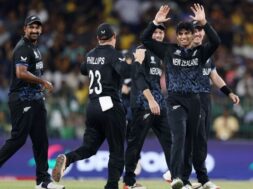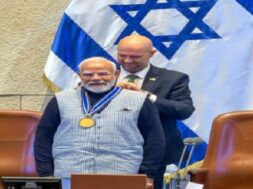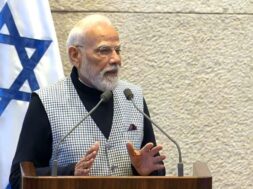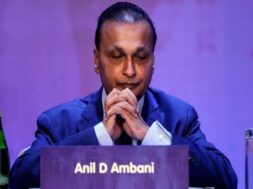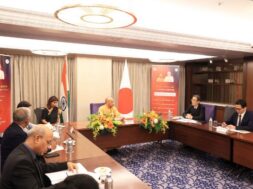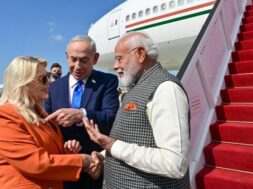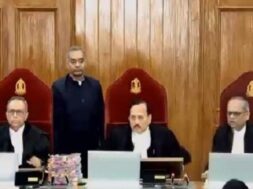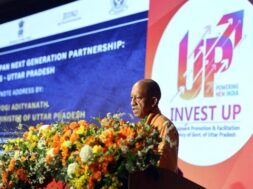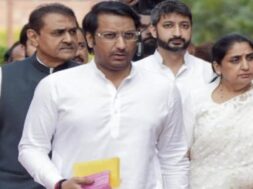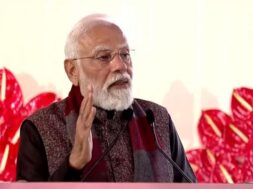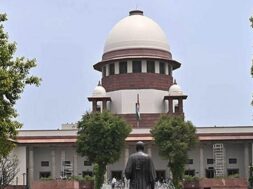
Virendra Pandit
New Delhi: The Centre on Monday decided to handle the entire vaccination programme across India, once again, from June 21, and announced to continue the supply of food-grain free-of-cost to the poor and ration card holders until November, which will benefit 80 crore people.
In his ninth Address to the Nation since March 2020, Prime Minister Narendra Modi informed the people about these crucial decisions of the Union Government in a live telecast at 5 pm on Monday.
He said the Centre will buy vaccines and vaccination will be free-of-cost for all those above 18 years of age. However, those willing to get inoculated at private hospitals could do so by paying Rs.150 per jab.
The decision to extend free ration for the poor until November could be an indication that the Centre is gearing up for a possible third wave of the pandemic in July, as some experts have also feared. On May 5, as the devastating second wave swept across the country, K. Vijay Raghavan, Principal Scientific Adviser to the Government of India, had also warned that the third wave was “inevitable”, although he gave no timeline. Later, he virtually retracted this statement.
But doubts persisted that the smart virus could take a country by surprise after a lull. For example, the United Kingdom has seen a spike in caseloads last week, due mainly to the Delta variant of the virus first seen in India, prompting many to rethink the unlocking process scheduled there from June 14 to 21.
On Monday, Modi also cautioned the people to continue to adhere to the “Covid protocol”, including mask-wearing, sanitization, and social distancing as before, as the virus is an “invisible, face-changing” enemy. Earlier too, he had similarly urged the people to accept dawai bhi, kadai bhi (vaccination with continued restrictions) to ward off infections.
In the midst of the second wave, about a dozen state governments had urged the Centre to decentralize the vaccination programme as health was a states’ subject in the Constitution. Some states had even floated tenders independently to buy vaccines from abroad, only to be rebuffed by pharmaceutical companies that they could supply jabs only to the Centre.
In view of such bottlenecks of policies and processes, these states urged the Centre to take back the responsibility of 25% vaccination work from them, and return to the centralised scheduling as before.
Modi said 75 per cent of all vaccines manufactured in India will be procured by the Centre directly and distributed free-of-cost to the states and UTs, while the private sector could buy the remaining 25 per cent. He also said that states will no longer be involved in the procurement of vaccines.
His address came on a day India reported 100,636 fresh Covid-19 cases, the lowest in 61 days. The Centre’s decision came after several states, unable to handle the onerous responsibility, urged it to step in as they drew a blank in global tenders to purchase vaccines.
On May 1, the Centre had expanded vaccine coverage to the 18-44 age group, opened the market, introduced differential pricing and public-private split in supplies. Following this, some states, mainly the Opposition-ruled ones, tried to strike out a course independent of the Centre.
Modi said the Pradhan Mantri Gareeb Kalyan Anna Yojana will continue until the festival of Diwali to provide food to the poor.
He also regretted the loss of life mainly in the second wave and the problems faced by many.
“During the second wave, the demand for medical oxygen in the country increased unimaginably in April and May. Never in the history of India has the need for medical oxygen been felt in such quantity.”
“In 2014 when we were elected, vaccine coverage in India was only around 60 per cent, which was deeply concerning. The speed at which vaccination programme against diseases like smallpox or polio was taking place, the country would have taken 40 years for 100 per cent vaccination…We launched ‘Indra Dhanush’…and worked in a mission mode. In just 5-6 years, vaccination coverage had increased to more than 90 per cent. We increased speed and coverage of vaccination.”
About the Covid-19, he said India launched not one, but two indigenous vaccines in 2020. More than 23 crore vaccine doses have so far been administered in the country so far.
“Today 7 companies in the country are producing different types of vaccines. The trial of three more vaccines is also progressing in the advanced stage. Research on a nasal vaccine is also in progress.”
